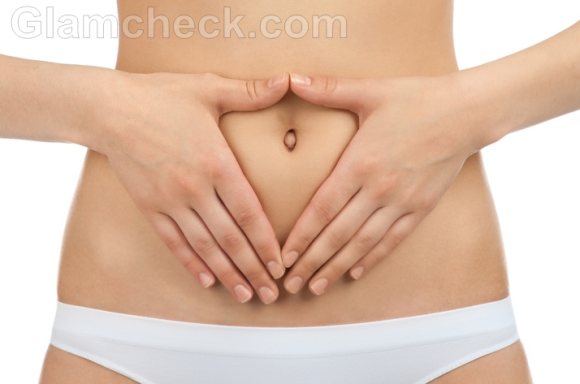Studies have shown that about 50% of all women will develop bacterial vaginosis in pregnancy, although most cases are not diagnosed or reported. This is because bacterial vaginosis is more of an asymptomatic disease, which means that most women who are afflicted by the disease will not have any symptoms. While bacterial vaginosis is pretty harmless in non-pregnant women, it’s a whole different ballgame during pregnancy. But before we get into the risks of bacterial vaginosis in pregnancy, let’s take a closer look at what bacterial vaginosis is and what the causes are.
What is Bacterial Vaginosis?
 Under normal condition, the vagina has plenty of good bacteria (Lactobacillus) that keep it clean and healthy. This is the main reason that doctors ask you not to use too much soap on your genitals or to wash it too often; any of these can strip your vagina of its natural good bacteria that are vital to its well-being.
Under normal condition, the vagina has plenty of good bacteria (Lactobacillus) that keep it clean and healthy. This is the main reason that doctors ask you not to use too much soap on your genitals or to wash it too often; any of these can strip your vagina of its natural good bacteria that are vital to its well-being.
But apart from the good bacteria, there are also plenty of bad bacteria in your vagina. The moist atmosphere of the vagina is very conducive to bacterial growth. But the good bacteria outweigh the bad bacteria by trillions so you do not generally have a problem.
When a woman develops bacterial vaginosis, the balance of good bacteria is negatively affected. This means that the bad bacteria have greater strength and are able to wreak havoc. No one knows why this happens.
Most people, even many doctors, will classify bacterial vaginosis as a sexually transmitted disease (STD). However, this is simply not true. Women who have never had sex have also suffered from bacterial vaginosis.
Causes of Bacterial Vaginosis in Pregnancy
 Nobody knows why bacterial vaginosis develops. Since the root of the problem is the diminishing numbers of good bacteria and the increase in bad bacteria, researchers have been attempting to uncover the reason for these phenomena but have been unsuccessful so far. However, doctors believe that some of the following may have a hand in causing bacterial vaginosis in pregnancy.
Nobody knows why bacterial vaginosis develops. Since the root of the problem is the diminishing numbers of good bacteria and the increase in bad bacteria, researchers have been attempting to uncover the reason for these phenomena but have been unsuccessful so far. However, doctors believe that some of the following may have a hand in causing bacterial vaginosis in pregnancy.
- Smoking
- Improper wiping after urination or defection. The correct method is front to back. Cleaning from back to front may transport bacteria from the anus to the vagina.
- Douching
- Some researchers believe that the presence of intrauterine contraceptive devices may be the cause of bacterial vaginosis in pregnancy.
Risks of Bacterial Vaginosis in Pregnancy
You might be wondering, if bacterial vaginosis is so harmless when you are not pregnant, what risk could there possibly be during pregnancy? Plenty. The fact is that bacterial vaginosis during pregnancy is one of the most under-rated yet prevalent health problems. If left untreated in pregnancy, bacterial vaginosis can have a negative impact on you and the pregnancy itself. Following are some of the risks of bacterial vaginosis in pregnancy.
- One of the major risks of bacterial vaginosis during pregnancy is that it can result in a premature baby. Doctors and researchers are not quite sure why this is so. A premature baby is at risk of developing complications typical to newborns like breathing problems. A few premature babies are even at risk of death. Premature babies may also have lifelong disabilities stemming from the fact that their brain and organs did not get the time to fully develop in the womb during pregnancy. Some of the issues faced by premature babies are deafness, blindness, neurological problems, and behavioral problems.
- The other great risk of having bacterial vaginosis in pregnancy is that the baby could be born with a low birth weight. Again, doctors are unsure why. However, babies with low birth weight face almost the same risks as those of babies born prematurely. Some of the other conditions that low birth babies could encounter include intraventricular hemorrhage or bleeding in the brain, heart problems, and intestinal abnormalities. Studies have shown that almost 40% of women who develop bacterial vaginosis during pregnancy are likely to have low birth weight babies.
- Women who have bacterial vaginosis during their pregnancy are at higher risk of developing urinary tract infections after birth.
- The bacteria that are causing the bacterial vaginosis during pregnancy may be able to travel up the fallopian tubes and to the womb, infecting both in the process and causing pelvic inflammatory disease, which leads to its own set of complications such as infertility and organ damage.
- Although bacterial vaginosis is not a sexually transmitted disease; it can increase your susceptibility to other STDs like gonorrhea and even the dreaded HIV.
- Bacterial vaginosis in pregnancy may also be linked to miscarriage.
Symptoms of Bacterial Vaginosis
Pesky, uncomfortable and embarrassing are how the symptoms of bacterial vaginosis in pregnancy are described by women who have experienced them. Now that you know the risks to your pregnancy and your baby, ensure that you keep an eye out for the symptoms and report them to your doctor immediately so that bacterial vaginosis can be diagnosed, effectively treated and thus hopefully be prevented from causing any damage.
- If you have bacterial vaginosis during pregnancy, you may have a thin whitish or grayish vaginal discharge, sometimes accompanied by a foul odor that has often been described by many as fishy. The smell is usually strongest after sex, thought to be so when the semen mixes with the bacteria and vaginal fluids.
- Although not common, some women with bacterial vaginosis have reported a slight tenderness of the genitals.
- Some women who have bacterial vaginosis in pregnancy have also reported pain during sex.
- You may experience a burning sensation while urinating if you have bacterial vaginosis in pregnancy.
- Severe itchiness in the genitals and around the vagina is another symptom of bacterial vaginosis in pregnancy.
But you may have no symptoms of bacterial vaginosis in pregnancy at all. So it is important that you talk to your doctor about whether you may be at a greater risk of bacterial vaginosis during pregnancy and get tested if you suspect you may be susceptible to developing the condition.
Remedies for Bacterial Vaginosis
If you have bacterial vaginosis in pregnancy, do not worry unduly as this can be easily cured. Usually, just leaving the bacterial vaginosis alone would be OK as your body would take care of itself and the harmful bacteria would be dealt with in time. But during pregnancy, you need to take active curative measures.
If you have been diagnosed with bacterial vaginosis during pregnancy, you will be prescribed a course of antibiotics. Make sure that you take each dose as prescribed to ensure that your bacterial vaginosis goes away and stays away. It is quite common for bacterial vaginosis to return between one and three months after it has cleared up. This is best prevented during pregnancy so take due precautions and follow doctor’s orders to a T. Also tell your doctor if and as soon as the bacterial vaginosis returns during your pregnancy and after.
Some doctors will also prescribe topical treatments for bacterial vaginosis in pregnancy that need to be applied at night for about a week. However, studies have shown that topical treatments cause bacterial vaginosis to return sooner than it would with a course of antibiotics.
There are also some natural remedies for bacterial vaginosis in pregnancy. Although there are no medical grounds for some of these remedies, many women have reported considerable relief. Here are some instances of natural remedies for bacterial vaginosis in pregnancy.
- Incorporate some garlic into your diet when you have bacterial vaginosis in pregnancy. Allistatin, a natural antibiotic, is found in garlic and is said to help in the battle against bacterial vaginosis due to its anti-fungal properties. Be warned though that advocates for this treatment suggest an intake of almost a whole bulb of garlic daily before any effects will show.
- Some women find relief from the symptoms of bacterial vaginosis in pregnancy by inserting tablets of boric acid in the vagina. You should speak to your doctor about this if it is something you want to try.
- Eating spinach may help in fighting bacterial vaginosis in pregnancy.
- Drinking cranberry juice will not cure the bacterial vaginosis in pregnancy but will help your body in the battle against it.
- Yoghurt is thought to be good for the treatment of bacterial vaginosis in pregnancy as it naturally contains lactobacillus, the same good bacteria in the vagina. However, it is not the same strain, which is why there is much debate over whether or not eating yoghurt can actually help with bacterial vaginosis in pregnancy.
- Increase your intake of food that is high in Vitamin A, Vitamin C and Vitamin D if you have bacterial vaginosis in pregnancy.
- If your case of bacterial vaginosis in pregnancy is characterized by vaginal itching, you can try applying an over the counter Vitamin E topical gel for relief.
Possible Preventive Measures for Bacterial Vaginosis in Pregnancy
Since the cause of bacterial vaginosis is unknown, during pregnancy and otherwise, it is not easy to figure out exactly what you can do to prevent its onset. However, researchers and doctors have provided a short list of dos and don’ts based on observation to reduce your risks of developing bacterial vaginosis during pregnancy.
- Do not douche during pregnancy as it can strip your vagina of the natural good bacteria and allow the bad bacteria that cause bacterial vaginosis to take over.
- Do not wash your underwear with strong detergent as there is always a possibility of some residue being left behind and messing up the balance of the good bacteria in your vagina, thus possibly leading to the development of bacterial vaginosis in pregnancy.
- Do not wash your genitals too often as it can strip your vagina of the natural good bacteria and pave the way for the bad.
- Try to avoid adding scented oils, bubble bath and other products to your bath during pregnancy. They contain several chemical ingredients that could kill off the good bacteria in your vagina. Replace your normal bath soap with the hypoallergenic variety, at least during your pregnancy.
- Avoid having multiple sexual partners during pregnancy. Although they are not sure why, researchers think there might be a connection between unsafe sexual practices and bacterial vaginosis.
- Clean front to back after using the toilet. This is a good hygiene practice that you should develop not just during your pregnancy but after as well.
Image: Shutterstock
